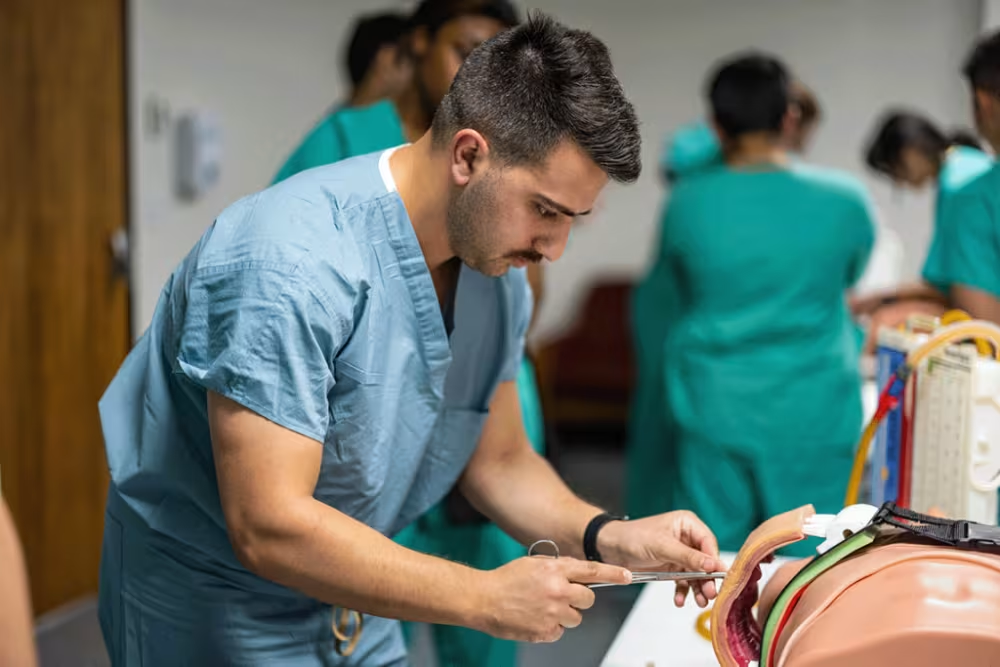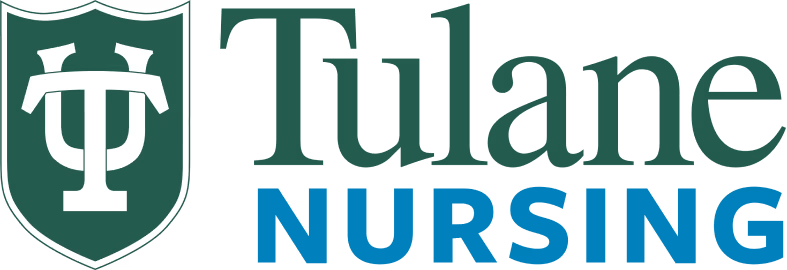How to Become a Nurse: 6 Steps Toward a Future Career
Starting your nursing journey can come with many questions about how to earn a BSN and what happens afterward. With Tulane University’s accelerated BSN program, we can help you plan your future with these six steps for how to become a nurse.

The path to becoming a nurse may seem long and challenging, but planning ahead and anticipating steps will help you greatly. However, you may still have questions. By learning more about the six steps to become a nurse, you can feel more comfortable as you start your journey.
How long does it take to become a nurse? The answer depends on your circumstances. If you have previous college credits, you can earn a Bachelor of Science in Nursing (BSN) faster through an accelerated BSN program than a traditional program (not including the time needed to complete prerequisites). You must also pass the NCLEX to earn a nursing license.
Through Tulane University’s accelerated Bachelor of Science in Nursing (aBSN) program, you can earn a BSN in as few as 16 months. Our hybrid online program helps students leverage previous credits toward a nursing degree and propel them into a successful career in the healthcare field.
Located in the heart of New Orleans, the aBSN program allows students to forge valuable healthcare connections throughout the area while living in a city with a distinct cultural heritage, bustling with a diverse music and arts scene, delicious cuisine, and a vibrant community.
Read on to learn more about how to earn a BSN on an accelerated timeline with Tulane.
1. Select the Right Nursing Program for You
As you choose a nursing program, it is essential to fully understand the types of nursing programs and how they could benefit you. While a traditional BSN takes four years, an accelerated BSN program takes 16 months and can be completed with greater flexibility than other programs.
This option comes with a different set of admission requirements and rigor, so you should ensure that you are a good candidate for an accelerated program before applying. Additionally, you should research the school and surrounding area.
Each school has its own set of priorities and values that define much of its program and curriculum. Many Tulane students are drawn to our long history of educating innovative leaders in healthcare, our dedication to serving one’s community, and the opportunity to live and work in New Orleans.
Investigate clinical partnerships and neighboring facilities as well. While this may not seem important, clinical rotations are a key part of your education, and skilled mentor nurses and preceptors can greatly impact your growth as a nurse.

Why Earn a BSN?
As you research how to become a nurse, you will notice that more than one degree qualifies you for the nursing licensure exam; however, a BSN is the preferred credential for many reasons.
First and foremost, the American Association of Colleges of Nursing notes that an increasing body of evidence indicates a connection between BSN education and patient care delivery. A March 2022 study published in Nursing Outlook found that facilities with high percentages of BSN-educated nurses saw decreased 30-day inpatient surgical mortality rates.
A BSN offers prospective nurses a comprehensive education that thoroughly prepares them to provide quality, evidence-based patient care. This quality of education has such a significant impact that many organizations prefer to hire BSN-prepared nurses for certain positions. For example, magnet hospitals now require that all nurse managers and leaders possess a BSN or graduate degree in nursing to qualify.
A BSN also sets nurses up to pursue higher education. Nursing graduate programs require applicants to have at least a BSN to enroll. If you want to become an APRN, such as a nurse practitioner, earning a BSN streamlines the path ahead.
2. Take Prerequisites
When applying for the aBSN program, the coursework completed in your previous major degree program determines the number of prerequisite courses you’ll need to complete prior to starting nursing school. A biology major, for example, may have more of the prerequisites completed than someone with a communications background.
Your start date may depend on when and how you choose to complete your prerequisites and how many you still need to complete. However, a Tulane aBSN admissions counselor will be with you every step of the way. They will plan out the timeline with you, ensure that you are enrolled in all necessary prerequisites, and help you get started with the program as soon as you have completed all necessary requirements.

3. Apply to Nursing School
When it comes time to submit your application, you will need to meet several requirements, including:
- A minimum of 60 undergraduate credit hours from an accredited institution
- A minimum cumulative GPA of 3.0
- Completion of core curriculum requirements
- Completion of prerequisite requirements within seven years of applying to the aBSN program
- A cumulative nursing major prerequisite GPA of 3.0 with a grade of “C” or higher in any one course
Once your counselor ensures that these requirements are met, you must submit the following in addition to official transcripts as part of the admissions process:
- Video submission: The video must be no longer than 2 minutes and answer the following questions:
- What characteristics do you possess that will make you a good candidate for the Tulane Nursing program?
- Provide an example of when you demonstrated your leadership qualities.
- How will you balance the demands of this 16-month program with the other demands in your life?
- Confirmation that You Meet Technical Standards: The Technical Standards can be accessed via a link on the application. You must provide a digital signature to certify you have read and understand the Technical Standards.

Each applicant is assigned an admissions counselor to assist them throughout the application process, from the first phone call to when they submit their application package.
4. Complete the Nursing Program
Once you have received notification of admission to the aBSN program, it is time to prepare for the excitement and rigor of nursing school.
We’ve found that the first semester of the program tends to be the toughest for students, which may be due in part to acclimating to the volume of information they must learn, absorb, and retain right out of the gate.
Our full-time, four-semester aBSN program consists of fundamental online nursing coursework, nursing skills labs and simulation experiences, and clinical rotations in New Orleans-area healthcare facilities.
Enrolling in this program requires a serious commitment on your part, with an expectation of spending a significant amount of time on your studies each week. Thanks to our partnership with clinical providers throughout New Orleans, you’ll have the chance to learn from some of the area’s best healthcare providers.
While you may be a good fit for our aBSN program, timing is everything. It’s important to consider your day-to-day responsibilities and evaluate your schedule to ensure you have the time to take on the demands of a nursing student. The most successful aBSN students are highly motivated, mindful of their own well-being, and make time for self-care.
5. Take the NCLEX-RN

Once you complete the program and earn a BSN, you are prepared to sit for the NCLEX-RN® exam with confidence. Upon passing, you’re officially eligible for licensure as a registered nurse who can work in a variety of healthcare settings, from hospitals to schools to assisted living communities.
This exam consists of various question types that comprehensively assess basic nursing skills, decision-making abilities, patient care practices, and more. The exam utilizes computerized adaptive testing that generates questions based on previous answers.
It is absolutely necessary to study for the NCLEX well before taking the exam. While Tulane will help you prepare, you should feel confident in the testing format and content to be best equipped to succeed.
6. Apply for Nursing Jobs
Overall, when you choose Tulane University to earn your BSN degree, you are prepared to enter the profession with confidence. You can also pursue an advanced nursing degree in the future if you so desire.
As a registered nurse, you will have many career paths available. While most nurses work in a hospital setting, others choose to work in smaller facilities, family care, pediatrics, non-bedside jobs, and much more. All nurses must employ certain skills and practices, but these can be applied to a career in endless ways.

Start Pursuing your Nursing Goals Today
As you can see, an aBSN program is a great way to earn your BSN and transition into the nursing profession. It’s an intense education path, but if you’re committed, it enables you to earn a BSN in as few as 16 months. Contact an admissions counselor today to learn more about how to become a nurse in a lively and beautiful city like New Orleans.

